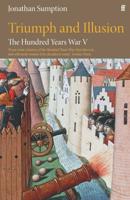Publisher's Synopsis
Excerpt from The History of England From the Accession of George III., 1760 to 1835, Vol. 7 of 7
State of the country at the beginning of 1823 - Openin of the sessio -debates on Spain and the holy alliance -a airs of Spain, and restoration of Ferdinand VII. - Ad'airs of Portu 1 -agricultural and commercial interests - Free trade he budget - Affairs in Ireland - Catholic question - Fracas be tween Mr. Brougham and Mr. Canning - Motions to reform the criminal law Lord A. Hamilton's motion to reform the state of Scotch representation - Mr. Canning's o inions on the subject of reform, &c. - New London-brid e bi l - Mr. Cree vey's motion respectin the four and a hal per cent duty on the Leeward Islands xpenses'of the coronation - Other in stances of extrava ant expenditure exposed by Mr Hume - The kin 's donation 0? The library of George III. To the public Iris tithe commutation bill - Dissenters' marriage act thrown out Prorogation of parliament -state of the country Appointment of consuls to the South American colonies - Sen timentsof Mr. Cannin on this subject, &c. - Extract from his speech at Plymouth - State of the country at the beginning of 1824 - Meeting of parliament - Attack on ministers on account of the occupation of Spain, firm - Recognition of South Ame rican independence - Financial statement - Repeal of taxes, bounties, &c. - Steps towards a more unrestricted system of trade - Debates on the same - Alien bill, &c. - State of Ire land, catholic association, 8m.
About the Publisher
Forgotten Books publishes hundreds of thousands of rare and classic books. Find more at www.forgottenbooks.com
This book is a reproduction of an important historical work. Forgotten Books uses state-of-the-art technology to digitally reconstruct the work, preserving the original format whilst repairing imperfections present in the aged copy. In rare cases, an imperfection in the original, such as a blemish or missing page, may be replicated in our edition. We do, however, repair the vast majority of imperfections successfully; any imperfections that remain are intentionally left to preserve the state of such historical works.









